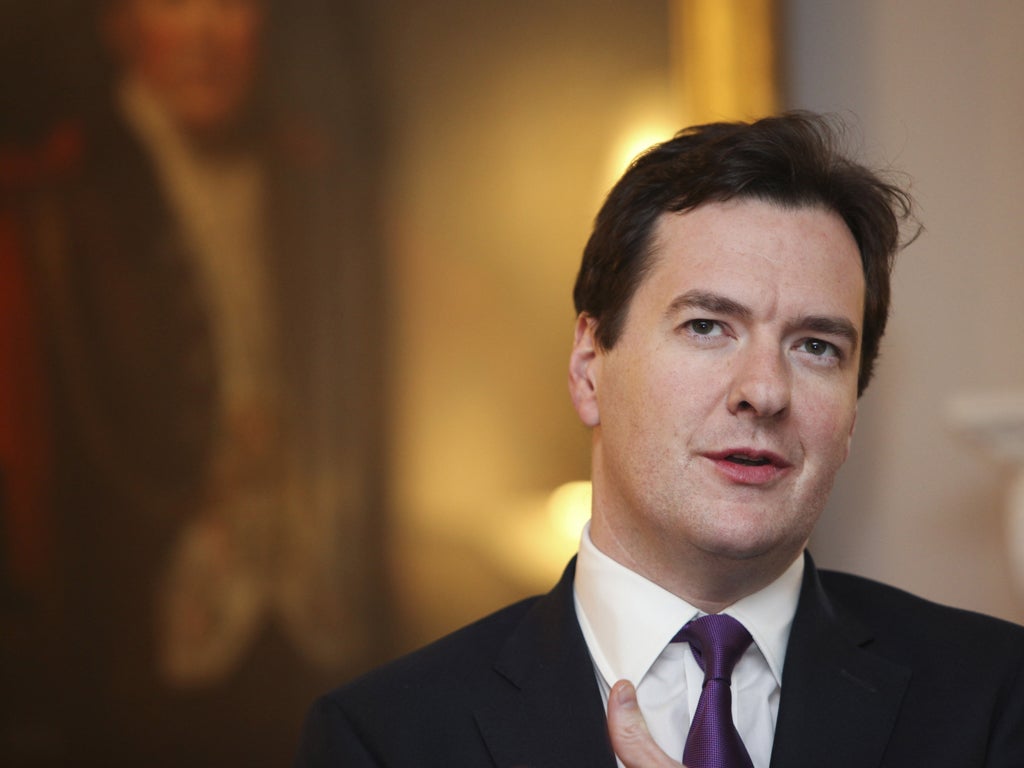George Osborne is not the only one who will cut welfare. The numbers can’t add up otherwise
Even two more years of decent growth will not close the gap in the public finances


So George Osborne promises another £25bn of spending cuts after the election, mostly from welfare, while David Cameron promises to keep the “triple lock” on the state pension. Ed Balls acknowledges that there will have to be some further reductions in spending after 2015, but that these will be fairer than those proposed by the Tories. What’s up?
Well, the economics behind all this is that the debate has shifted from cyclical to structural. Until recently, it was all about the cycle. Why was published growth so low? Why was the rise in living standards so weak? To what extent was feeble growth the reason for slow progress on cutting the fiscal deficit? Or were efforts to reduce the deficit the cause, at least in part, of the slow growth?
That debate is now more or less settled. The cyclical recovery is secure. The deficit is coming down again. Employment, already much stronger than expected, is at an all-time high. The triple-dip never happened and even the double-dip has been revised away. Critics of the Coalition argue, correctly, that this has all taken two years longer than the Government expected. Supporters argue, correctly, that the recession was even deeper than initially estimated and the external environment, particularly in Europe, far worse than envisaged. There are concerns about the nature of the recovery, supported as it is by rising house prices, but no one really doubts that it is under way.
The trouble is that, even with a strong recovery and even with the tax increases and spending cuts that are in the pipeline, we still have a deficit. Worse, we will continue to have one during the next parliament. There is a structural problem as well as a cyclical one.
This not a new issue, for we now know that the last government went into the recession with a structural deficit of some 4 per cent of GDP. It was running a deficit at the top of the boom, when it should have been running a surplus. To be fair, the scale of this mismanagement was not fully apparent at the time, and I don’t think even now Ed Balls would fully accept the scale of the error. The problem remains: even were our economy at full tilt, the government would still be running a deficit. The next government has to correct this, either by cutting spending or by increasing tax revenues, or maybe by doing both.
To grasp the scale of the problem, look at these numbers. This financial year, the one that ends in April, total government revenues will be around £600bn. By 2016/17, the first full fiscal year after the election, revenues are projected to be above £700bn. But spending this year will be more than £700bn, and in 2016/17 it is projected at more than £750bn. Even two more years of decent growth will not close the gap. What, then, do you do?
I suppose that the next government could hope the numbers will turn out better, but it cannot assume so. It could continue to borrow, but we are already spending £50bn a year on interest and rates are sure to go up. It could increase taxes, but over the past 25 years revenues have stuck at about 37 to 38 per cent of GDP, so to do so would be to do something that no government – Tory, Labour or coalition – has done since the 1980s, when revenues were boosted by the peak of North Sea oil. (Actually, the present tax-gathering plans are towards the top end of this scale.)
So there have to be cuts in spending, or rather cuts in planned spending, because actual spending will continue to climb. Where can those cuts be found?
To oversimplify a bit, spending is in two chunks. Roughly half is on government services: health, education, defence, police, administration, and so on. The other half is recycled. Money arrives in taxes and National Insurance and goes straight out again in pensions, unemployment benefits and other welfare payments.
Present plans are for the services part to go on being squeezed down, and since the NHS cannot really be squeezed at all, there is huge pressure on everything else. Realistically, it will be very hard to crunch anything more out of this area. Even hitting present targets will be a nightmare.
So the next government, of whatever colour, will have to try to contain the recycling part of public spending – what is loosely called social security. But that will be a nightmare too, because half of that spending is on pensions, and they cannot be touched.
That was the significance of the Prime Minister’s commitment on the triple lock, endorsed by Labour. Pensioners vote. So the only area that can be cut, and this is the significance of the Chancellor’s comments, is spending on other welfare benefits. Labour would be most reluctant to be seen to be cutting those, but it is hard to see what else it could do.
Join our commenting forum
Join thought-provoking conversations, follow other Independent readers and see their replies
Comments
Bookmark popover
Removed from bookmarks